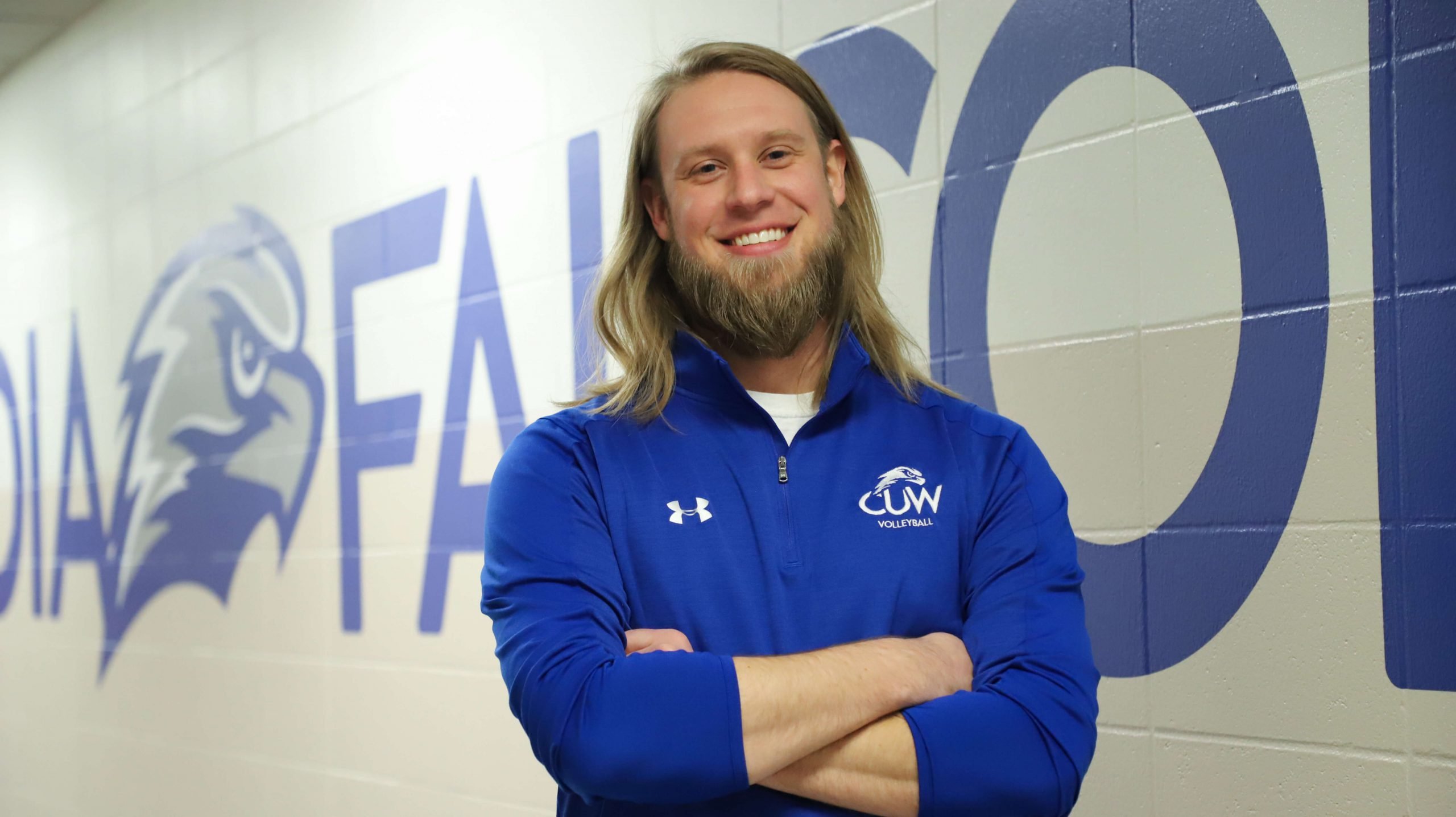
Jeremy Schumacher is the assistant women’s volleyball coach at Concordia University Wisconsin. He is also a licensed marriage and family therapist with years of experience in Christian counseling, a former NCAA Division I athlete, and the son of Lutheran educators. This triad of experiences makes him uniquely qualified to be named the first mental wellness coach in Falcon history, in Northern Athletics Collegiate Conference history, and, perhaps, even in NCAA Division III (D-III) athletics history.
“We don’t know of any other position like mine in D-III athletics,” says Schumacher. These positions are becoming more common in D-I programs and are staples in pro-athletics, but most D-III programs don’t allocate the resources to focus on the mental well-being of athletes in addition to their performance and academics.”
There is a reason this position is so rare and so very necessary.
According to a USA Today report on the results from a student-athletes survey conducted by the Michigan School of Public Health, “33% of all college students experience significant symptoms of depression, anxiety or other mental health conditions. Among that group, 30% seek help. But of college athletes with mental health conditions, only 10% do.”
Schumacher offers a couple reasons for the discrepancy of seeking help between student athletes and the general student population.
The most popular hypothesis is stigma. According to Schumacher, “Student athletes are used to putting it all in their sport and don’t want to seem weak. They function at a high level, earn good grades, and are standout performers. They are used to winning in pressure situations and don’t want to tarnish that image by admitting that they struggle with depression or anxiety.”
Another popular hypothesis is time. “They’re just too busy between academics and their sport; too tightly scheduled to recognize that their mental health might be suffering,” explains Schumacher.
Athletics and mental wellness is a balancing act that Schumacher readily embraces. Much of his student athlete counseling is shorter term or specific to the team and the performance. He is especially positioned to help manage performance anxiety, injury and recovery concerns, and team dynamics. Those specific needs often provide an entry point for athletes to share their deeper concerns and struggles in a non-anxious, comfortable, familiar setting. After all, they are simply speaking with a coach they know in an office located within the athletics department. It’s a nuance that Coach Schumacher and the other coaches understand and readily accommodate.
This ministry of presence has never been more appreciated and more challenging than during this unprecedented time of social distancing. Schumacher shares that his top priority is to help athletes stay connected.
“Each team has its own unique identity,” says Schumacher. “Coaches are using technology to keep teams together in ways that are specific to them.” For example, the football players competed in an online football tournament and multiple teams participated in distant 5K runs on the same day to celebrate National Student Athlete Day
The teams that are in season try to stick to their routines as much as possible. They meet online during scheduled team meetings times, they study together over Zoom as the team would in-person, and they continue to work out together in small virtual groups.
The coaches meet together online as well. They share recruiting strategies, they connect to support each other, and they unite to care for their athletes who are and have always been students first.
“Our athletes’ biggest stressor is still school,” says Schumacher. “For as much as they miss their sport, school is the biggest change.”
Schumacher explains that the coaches have always emphasized the importance of academics in their programs, but now their coaching skills are being used almost exclusivity to motivate, challenge, and push athletes through their studies from a distance.
Schumacher considers it his ministry to assist. Literally, as in assistant coaching for the women’s volleyball team, and missionally, as in providing critical assistance to the mission of Concordia University Wisconsin.
“When I think about our mission of preparing students in mind, body, and spirit, I have a little different take on the mind part,” says Schumacher. “I focus on the wellness of the mind and help students develop mental toughness, resiliency, and self-awareness – things they don’t learn in school – to be of greater service.”
Schumacher is grateful that his position at CUW allows him the rare opportunity to combine his passions for psychology and athletics with his Christian counseling background to help young people at such a critical time in their lives develop the skills that they will need to have successful and fulfilling lives.
Schumacher lives in Milwaukee with his wife Carrie, their two-year-old son Silas, and their three dogs.
For more information about CUW athletics, please visit here.
— Lisa Liljegren is vice president of marketing and strategic communications.
If this story has inspired you, why not explore how you can help further Concordia's mission through giving.